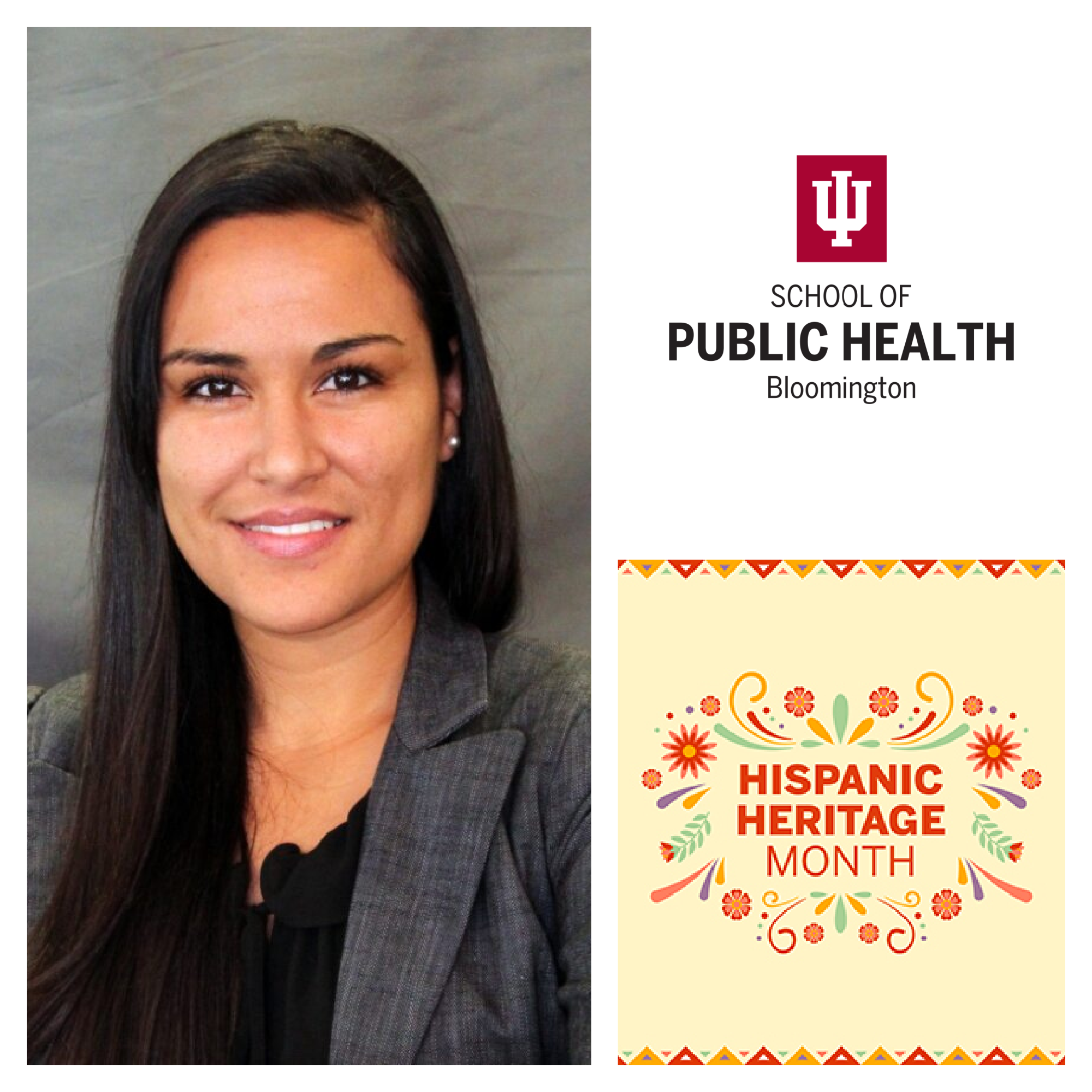Recent research shows an often-overlooked high rate of hypertension associated with HIV. Starting with Indianapolis, faculty member Karla Galaviz, Ph.D. is leading the way in hypertension screening interventions for those living with HIV.
An assistant professor in the Department of Applied Health Science, Dr. Galaviz was recently awarded a two-year, $237,750 grant from the National Institutes of Health (NIH) for "Improving hypertension care for persons with HIV in Indiana: a participatory agent-based model."
Partnering with Dr. Galaviz on this project are two colleagues from the Indiana University School of Medicine Samir Gupta, M.D. and Sarah Wiehe, M.D., M.P.H., who is also co-director of Indiana Clinical and Translational Sciences Institute (CTSI). The team will start their research in Indianapolis, working with three HIV clinics (two of which belong to IU Health and the third being safety net clinic for people without access to health insurance).
"Dr. Wiehe’s team has curated a robust dataset on clinical HIV care outcomes among a retrospective cohort of over 11,000 people living with HIV in Marion County," shares Dr. Galaviz. "We will use the data to identify how many of those people have been diagnosed with hypertension, how many have been treated, and how many of those treated have been controlled—that is, their blood pressure has gone down."
Dr. Galaviz says that because many health professionals focus HIV patient care on the virus itself, the associated hypertension is sometimes overlooked. Hypertension can be associated with a litany of health issues, so incorporating hypertension detection and treatment as part of routine HIV care is critical.
"This grant seeks to address this by working with HIV clinicians and service agencies to devise a way to improve hypertension care for people with HIV," says Dr. Galaviz. "We want to see how we can integrate hypertension diagnosis and treatment in a given clinic or agency."
Dr. Galaviz, who has conducted extensive research on integrating HIV and hypertension care in South Africa, says the process began eight years ago during her work as a postdoctoral fellow at Emory University in Atlanta when a colleague suggested combining their HIV and diabetes research work. "We completed studies that showed diabetes risk was, in several cases, higher for people living with HIV," says Dr. Galaviz. "We also saw that these people progressed faster from elevated glucose to the diabetes stage than people without HIV."
Inflammation in the body of a person fighting HIV—and disruptions to the metabolic system caused by older HIV medications—are factors contributing to this elevated progression, according to Dr. Galaviz. Further complicating matters: Many HIV patients are from underserved minority populations who might have limited access to preventive care.
"The newer drugs are better, but they are making patients gain weight, so it is a tricky situation not only with their body fighting the virus but also with the medications they need," says Dr. Galaviz. "Cardiovascular disease and hypertension risk in this population are highly prevalent risk factors that we should tackle head on.”
Dr. Galaviz is proud of her rich Mexican heritage, having completed undergraduate studies at University of Guadalajara, and is passionate about integrating evidence into real-world practice to better serve minoritized populations. Currently, Dr. Galaviz and colleague Ines Gonzalez Casanova, Ph.D. are studying the feasibility of mobile pop-up units for diabetes prevention for rural Latino populations in Indiana. Look for further updates about this project in spring 2025!
To learn more about SPH-B faculty and students making a big difference both locally and worldwide, check out our most recent news stories.


